There is always time and space for improvements, you may be surprised on what we will tell you now
Do you want to make scuba diving a profession? you will find in this post the 10 most important considerations to keep in mind to become a successful divemaster
1 Stick to safety and to standards all the time. Never jeopardize your own or the safety of other divers with you, respect the diving limits (even on your days off) and the limits for which they are trained, respect the proportions/ratios of teaching, respect the people, uphold certain ethical values of your own profession. Treat divers to the kindest, be correct and courteous as much as you can and always ask, at the end of each dive, if there is anything you can still improve as a divemaster. You will be amazed by this, but you will learn from your divers every day, every dive. Your divers will be your best teachers for a long time to come. If you feel there is nothing they can teach you, then you are doing something wrong.
2 Be humble. In this profession you learn by observing and listening from other more experienced divemasters and other instructors. In particular, local divemasters, who have practiced their profession for years, can help you discover the local aquatic fauna and familiarize you with local diving procedures. Never stop learning and studying. Read books on local marine life books. Keep PADI standards up to to date by regularly downloading the Training Bulletins that PADI sends you. Standards change, update, improve and as a Professional you can’t stay out of the loop.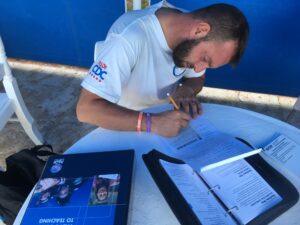
3 Work with other diving professionals. Helps other divemasters with the logistics and try to assist instructors during their teaching time, while on duties. You will be amazed at how much you can learn from students who are receiving lessons from other instructors, you will feel your techniques refine and your critical sense evolving to a higher level. You will be able to recognize many more technical issues and will learn to anticipate risk situations.
4 Become an instructor yourself. Remember that an instructor is also a Divemaster. By learning the teaching techniques typical of a dive instructor you will be more confident with your own techniques and you will become familiar with unique teaching standards. You may want to check also how to pass yoour IDC
5 Study. Find out more about what the local fauna is. The divers you take to the water want to know as well as see, they want to learn from you the names of the marine animals they see while diving and you, as a professional, must be able to at least provide them with a common name for the marine animals you spot while diving. . Sit down with them after their dives and help them recognize fish by reading a book about marine life and help them write down what they saw in their dive logbook.
6 Refine your diving techniques. Your buoyancy must be almost perfect, light and a source of inspiration for your divers, despite a few more leads that you bring and which can always be useful to assist other divers with buoyancy difficulties. At the same time, try to always have everything you need to be able to assist other divers in complete safety, such as buoys, whistles, computers… equip yourself with equipment in good condition. Remember that you are a model for your divers all the time.
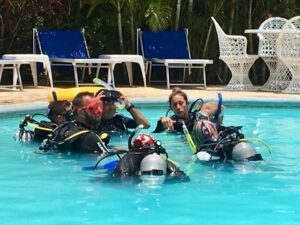 7 Be empathetic. Be calm and try to have the best possible attitude towards the divers you take in the water, identify yourself with them and try to understand what their diving goals may be. In these terms, the briefing is the ideal time to get to know them and their diving expectations. Carefully discuss the duration, the depth of the dive and establish safe and achievable goals through a multi-voice dialogue.You litterally need to have them participating in the discussion. Have them speak. Your briefings must not be boring monologues, but helpful and challenging explanation.
7 Be empathetic. Be calm and try to have the best possible attitude towards the divers you take in the water, identify yourself with them and try to understand what their diving goals may be. In these terms, the briefing is the ideal time to get to know them and their diving expectations. Carefully discuss the duration, the depth of the dive and establish safe and achievable goals through a multi-voice dialogue.You litterally need to have them participating in the discussion. Have them speak. Your briefings must not be boring monologues, but helpful and challenging explanation.
8 Always take care of the marine environment. Be yourself an example and collect garbage or anything you find unusual from the bottom of the sea, invite your divers to be equally respectful of nature itself to have a good buoyancy constantly. Suggest some important techniques to photographers to preserve the seafloor from possible contact with their equipment.
9 Travel. Do it as much as you can. A divemaster must be able to cope with various diving conditions. If you have experienced different conditions, different logistics, then you are not only a more complete diver but also a more versatile divemaster. Avoid repeating yourself. Diving and working in the same place for years, as well as depleting your techniques, burns you out. Avoid it.
10 Learn, if possible, a few more languages. Think how much a dive center can save in terms of money, if their divemaster is able to provide briefings in more than one language without having to hire several divemasters to cover different languages. It is not much what you have to learn. Sometimes learning few basic words for a briefing is enough. After few attempts you will see that it doesn’t take too long to be able to and interact in an effective way with divers of different nationalities.

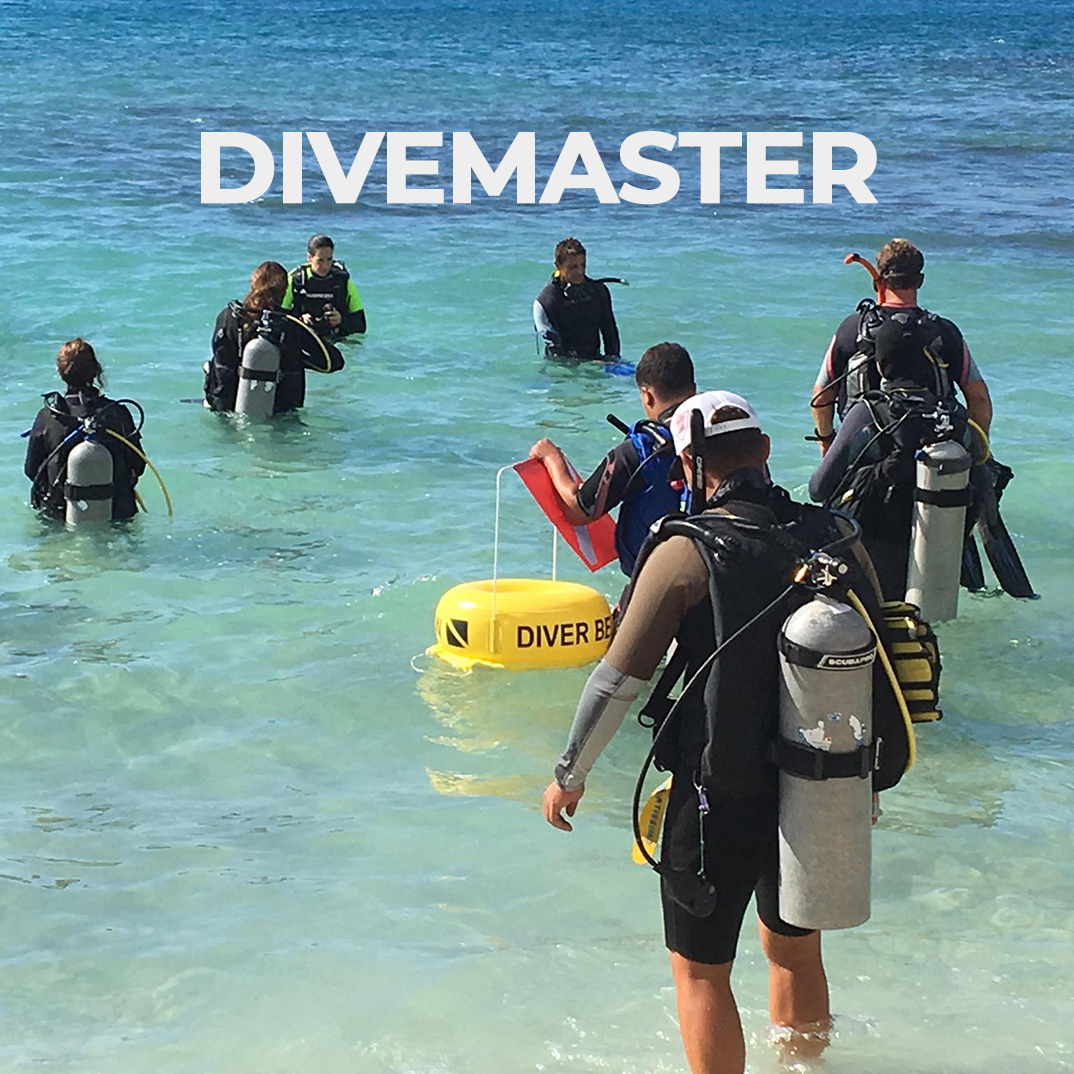

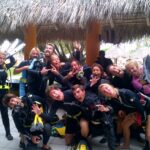

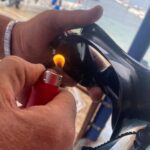
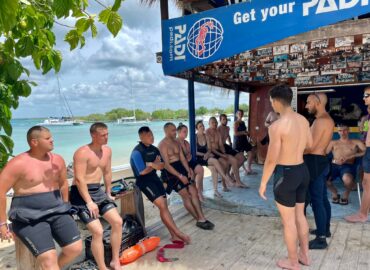
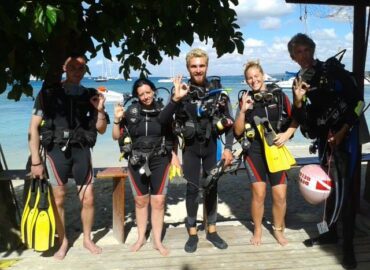
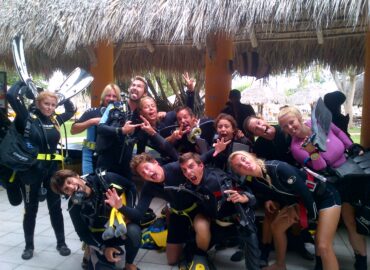
 WhatsApp us
WhatsApp us